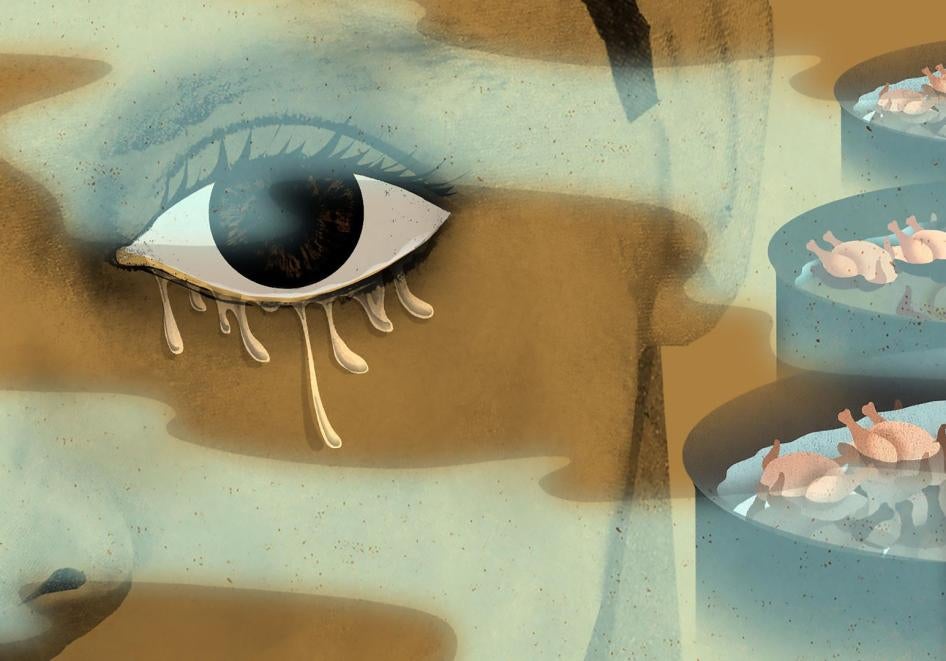People looking for ethical meat are inundated with reassuring labels. Those concerned about the treatment and conditions of animals might look for grass-fed or pasture-raised. Others might buy only antibiotics-free. Some focused on the environmental and climate effects of deforestation might buy local. But a shocking federal investigation has exposed an ethical concern for which there are no convenient labels: the treatment of workers doing the industry’s dirty, demanding and dangerous work.
On May 12, the House’s select subcommittee on the coronavirus released a scathing report that outlined how several of the country’s largest meatpacking companies worked with political appointees in the Trump administration to keep their workforces on the job — even as a deadly pandemic raged through the country. As meatpacking workers were publicly touted as essential to the country, the report found, they were treated as disposable by their employers and by the federal agency charged with regulating them.
During the first year of the pandemic, over 59,000 meatpacking workers were infected with the coronavirus and at least 269 lost their lives to it, according to lawmakers. These infections spilled over into workers’ homes, driving deadly spikes in their communities. According to a study last year from the University of California, Davis, coronavirus transmission rates were double the national average in counties with large beef and pork processing plants and 20 percent higher in counties with large poultry processors. Another study, from 2020, estimated that 3 percent to 4 percent of all Covid-19 deaths in the U.S. from March to July 2020 were tied to meat or poultry plants.
All told, the virus has taken a significant toll on the hundreds of thousands of women and men who kill, cut, debone and package America’s meat. But the exhaustive investigation conducted by the House subcommittee reveals that it didn’t have to be this way.
The 59-page report found that some of the country’s largest meatpacking companies battled to keep their operations open and running, even though they knew the danger it posed to workers. But for those who aren’t familiar with the industry, I’d argue that’s more of a feature than a bug.
In 2019, I interviewed dozens of current and former workers from chicken, hog and cattle slaughtering and processing plants across the U.S. as part of a Human Rights Watch investigation into working conditions in the industry.
These workers have some of the highest rates of occupational injury and illness in the country, and they labor in environments full of potentially life-threatening dangers. Moving machine parts can cause traumatic injuries by crushing, amputating, burning and slicing. The tools of the trade can cut, stab and infect. Even without accidents, the cumulative trauma of repeating the same forceful motions tens of thousands of times every day can cause severe and disabling harm.
These dangers are compounded by the rapid and unceasing pace of the line. Workers who spoke with me described a constant pressure from supervisors to keep production moving, despite their physical discomfort, pain or perception of danger.
And now, the select subcommittee’s investigation outlines how not even a global pandemic could upend this constant pressure to keep production moving.
Meatpacking companies knew the risk the coronavirus posed to their workers, the lawmakers concluded. The virus transmitted easily in these plants’ cramped conditions, where hundreds or even thousands of workers stand, indoors, often shoulder to shoulder, along the line.
But instead of shutting down plants in the wave of state stay-at-home orders, the report found, meatpacking companies worked closely with political appointees in the Agriculture Department to pressure the White House and other federal agencies to keep their workers on the job.
They justified operating under dangerous conditions by stoking baseless fears of a national meat shortage, the select subcommittee’s report found. By mid-March 2020, the Department of Homeland Security had declared meatpacking a critical infrastructure industry, purporting to exempt its workforce from the state-based stay-at-home and social distancing orders.
The report found that many workers were still afraid to clock in because of the lack of precautions and high infection rates in plants. So industry representatives and the Agriculture Department, allegedly working hand in glove, successfully lobbied the Labor Department to deny workers who chose to stay home or quit eligibility for unemployment benefits under the CARES Act.
Remarkably, as the virus continued to rage through their plants, meatpacking companies worked to weaken guidance from the Centers for Disease Control and Prevention and, according to the select subcommittee, drafted language for an executive order to shield them from liability for workers’ illnesses and deaths. After less than a week of review and revision, President Donald Trump signed an executive order based on this request in late April 2020.
Julie Anna Potts, the president and CEO of the North American Meat Institute, an industry group, said this report “ignores the rigorous and comprehensive measures companies enacted to protect employees and support their critical infrastructure workers.” But the report’s description of the disregard meatpacking companies and regulators had for the health and safety of workers is just more dramatic evidence of something watchdogs and advocates have been saying for years.
In the pursuit of profit, meat and poultry slaughtering and processing companies have sought to maximize the volume of production and minimize the cost of labor, whether by pushing production speeds faster or keeping lines moving despite known hazards. Time and time again, this drive has come at the expense of workers’ health and safety.
Conscientious consumers may not have an easy way to tell that their meat comes from a company that treats its workers well. But the federal government has plenty of tools to uncover and prevent abusive working conditions in the industry. Federal regulators, and the Occupational Safety and Health Administration in particular, should better protect meatpacking workers by enacting rigorous workplace standards, conducting more frequent investigations into factory conditions and making it easier for workers to file complaints without fear of retaliation. The Agriculture Department should ensure that they aren’t contributing to dangerous working conditions, especially where their policies may contribute to faster production speeds in the industry.
Above all, the U.S. government should ensure that meatpacking companies are no longer able to maximize production and minimize labor costs at the expense of their workers’ lives.










